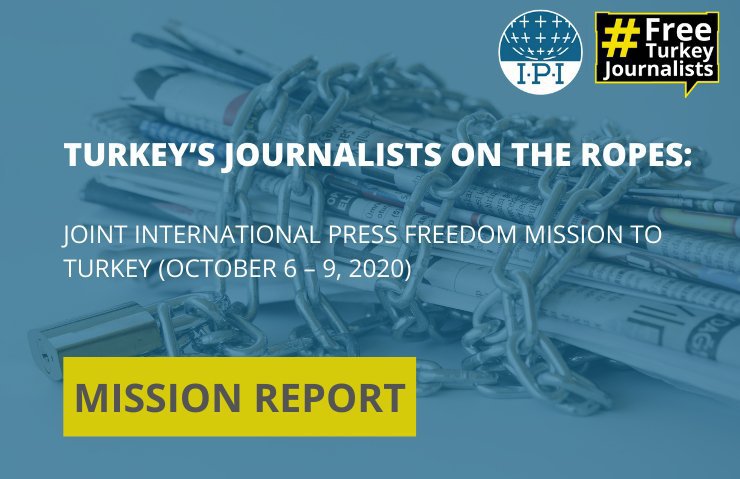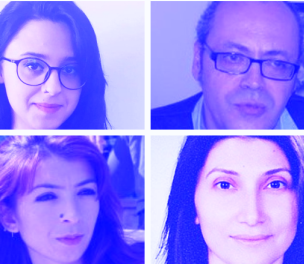Click to read the article in Turkish / Kurdish
The International Press Institute has released a report about freedom of the press in Turkey after a mission to Turkey between October 6-9.
The report examines the new social media law that came into effect at the start of October, regulatory bodies' punishment of independent outlets and the situation of judicial independence in the country.
While the number of imprisoned journalists decreased from 2017 when it was the highest, Turkey is still one of the world's largest jailers of journalists, says the report titled, "Turkey's Journalists on the Rope".
"Regulators, with their extensive powers to grant and remove licenses and impose financial penalties, are able to force independent media to either comply or risk closure," the report stresses. "This strategy is expected to ensure media self-censorship so the intervention of the courts becomes less necessary and less frequent."
CLICK - RTÜK issued 39 fines in one-and-a-half years, 36 of them were for critical outlets
CLICK - Turkey fines social media companies for failing to comply with new law
"The Social Media Law, if fully enacted, would also require social media companies to comply with government censorship demands or eventually face being blocked within the country.
"Meanwhile, in its communique of October 2, the Council of the European Union offered improved economic ties with Turkey without reference to Turkey's human rights record."
"The government is determined to use all available tools to suppress criticism whether on broadcasters, in print and online", IPI Head of Europe Advocacy Oliver Money-Kyrle said.
"The international community and the European Union, in particular, must be prepared to make improved relations contingent on an end to the media crackdown and improved human rights in general," he added.
The report has been prepared by IPI with the support of the following organizations: Association of European Journalists (AEJ), Committee to Protect Journalists (CPJ), European Centre for Press and Media Freedom (ECPMF), European Federation of Journalists (EFJ), Osservatorio Balcani Caucaso Transeuropa (OBCT), PEN International, Reporters without Borders (RSF), South East Europe Media Organisation (SEEMO).
Click for the full report
(HA/VK)







sasa.jpg)
as.jpg)
